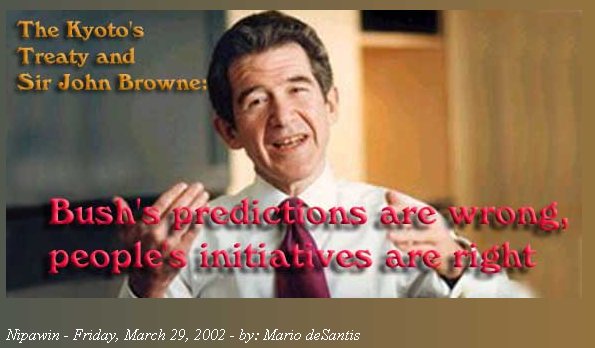Learning Stories
by
Mario deSantis
mariodesantis@hotmail.com
“I am a Canadian, free to speak without fear, free to worship in my own way, free to stand for what I think right, free to oppose what I believe wrong, and free to choose those who shall govern my country.” - -The Rt. Hon. John Diefenbaker, Canadian Bill of Rights, 1960
“The whole judicial system is at issue, it's worth more than one person.”--Serge Kujawa, Saskatchewan Crown Prosecutor, 1991
“The system is not more worth than one person's rights.”--Mario deSantis, 2002
Ensign Stories © Mario deSantis and Ensign
|
|
"If you tell the truth, you don't have to remember anything."--Mark Twain I am fed up with the business models of our neoclassical economists and their economic predictions. I mentioned in earlier articles that these economic predictions are self-fulfilling prophecies of our free marketeers for a freer market on behalf of the few and privileged. As long as we use economic predictions funded and predicted by Corporate America we will never have a civil society, instead we will have an ever unequal society divided between our corporate predictors and everybody else. I find the term Prediction and the related emphasis on being rational highly manipulative for directing our social and economic growth. Therefore, we must change our way of using logical and mathematical predictions to support our social and economic growth and we must be reminded that we must create our future through civil participation, listening to one another, learning from each other, and making decisions not because of the results of mathematical formulations but because of our creative choices. President Bush is not ratifying the Kyoto's treaty for the reduction of greenhouse emissions since his predictions for complying with this treaty are evidence that millions of jobs will be lost, that the GDP will be cut. Since when predictions have become evidence? So we have Bush's predictions that the Kyoto's treaty is too expensive and that it would cut into the GDP stimulated by waging wars abroad. Bush's predictions and wars go hand in hand and this is terribly wrong, and I wonder if this emphasis in making predictions is the result of the Enronization of Corporate America, the Enronization of business models peddled by Harvard University, the Enronization of economic globalization, the Enronization of our governments, the Enronization of justice. In Canada, our copycatting provincial premiers are against ratifying the Kyoto's treaty as these premiers echo in unison Bush's predictions of a decline in the GDP and a decline in our business competitiveness at a time of economic recession. It is not expensive to comply with the Kyoto's treaty for the reduction of greenhouse emissions, and besides, Bush's predictions don't include the social and environmental costs of pollution such as the premature deaths of people, the increase of respiratory illnesses, the contamination of water... President Bush forces his predicted decisions with the supreme power of his private government, with the supreme power of his military, and with the supreme power of his supreme justices at the Supreme Court. But social decisions should not be the result of the Bush administration's supreme predictions, rather, social decisions should be the result of our creative work to look for solutions for a better world. Compliance with the Kyoto's treaty is only too expensive for the few and privileged, it is only too expensive for our energy corporations, corporations which are looking for immediate profits by selling energy on the stock market rather than providing energy services through innovation and alternate sources. Bush's prediction that compliance with the Kyoto's treaty is too expensive is wrong and to prove that Bush is wrong, John Browne, BP chief executive, has recently mentioned that his company has met its self-imposed target for reducing greenhouse gas emissions nearly eight years ahead of schedule, and at no net cost to the company. And John Browne has stated "that achievement is the product not of a single magic bullet but of hundreds of different initiatives carried through by tens of thousands of people across BP over the last five years." References Pertinent articles published in Ensign An Oil Company Proves Bush Wrong On Climate Change. CEO John Browne Demands Government Help. By Seth Dunn, Research Associate at the Worldwatch Institute in Washington DC http://www.tompaine.com/feature.cfm/ID/5334 Mario deSantis' note: if you read the following speech by Sir John Browne, you don't have to remember it: 'THE TRANSATLANTIC RELATIONSHIP - THE NEW AGENDA' http://www.iue.it/RSC/BP/BP-speech.htm |
